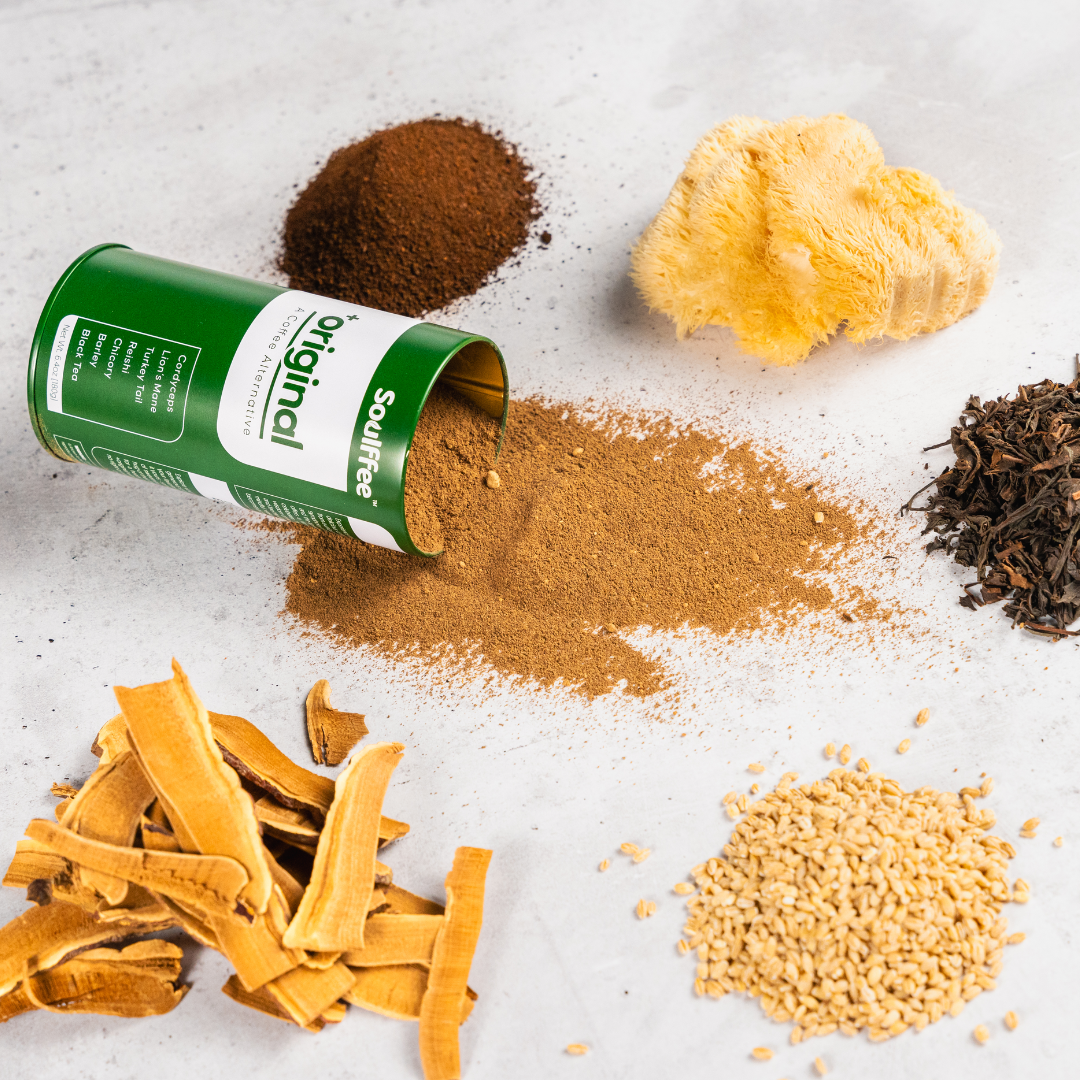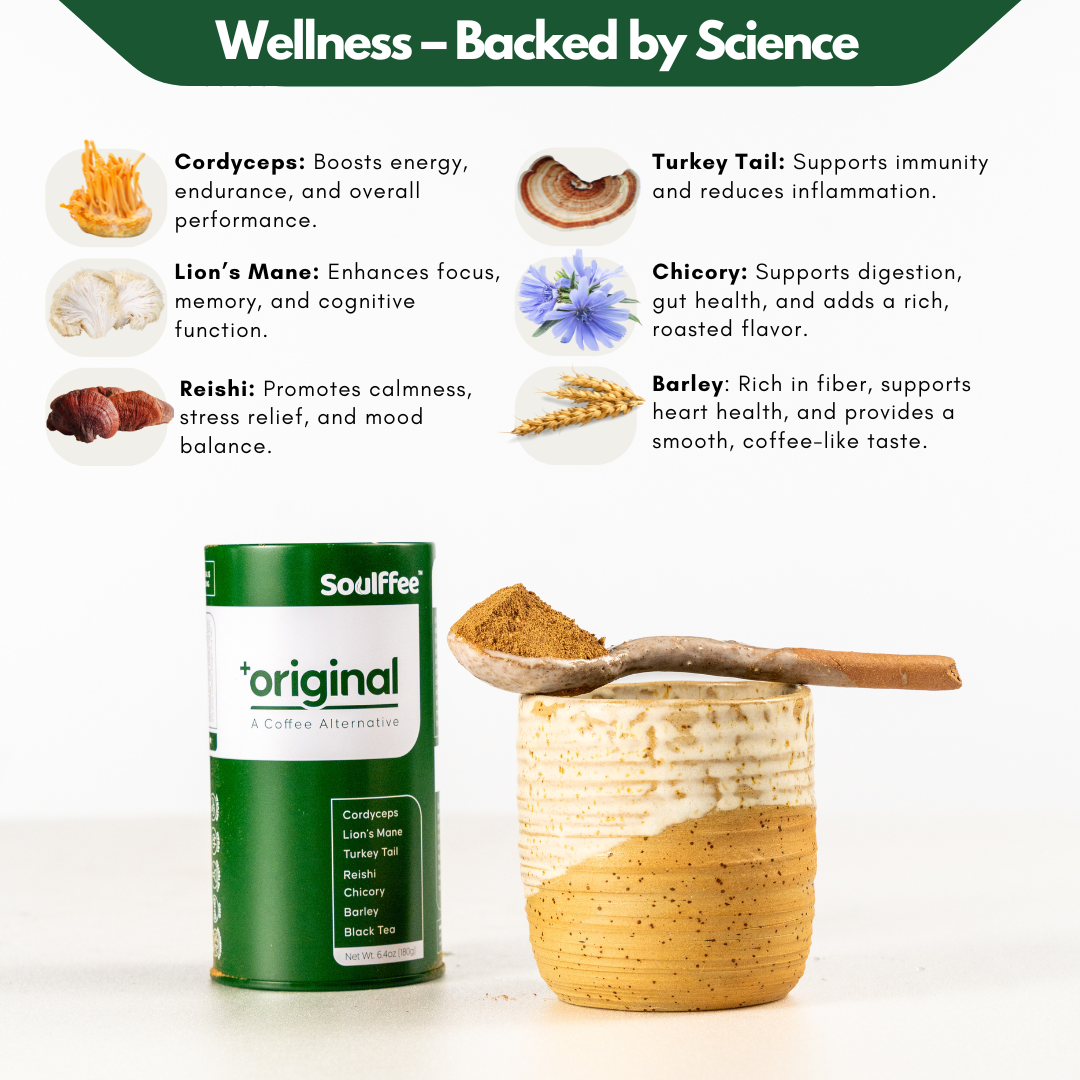The Connection Between Gut Health and Coffee: What You Need to Know
Caffeine is everywhere. From that first cup of coffee in the morning to the energy drinks we grab during a midday slump, it’s become a staple in modern life. But while caffeine gives us that quick boost, it’s not exactly the healthiest thing for your body. In fact, caffeine is more of a silent troublemaker than most people realize. It’s hiding in so many everyday products, making it easy to overdo without even noticing.
Let’s talk about why you need to watch your caffeine intake and how too much can seriously mess with your mood, stress levels, and sleep.
Why Caffeine Isn’t as Harmless as It Seems
Caffeine may help wake you up, but that doesn’t mean it’s harmless. It’s a stimulant that can have real consequences on your physical and mental health if you don’t keep it in check. The truth is, caffeine is in more than just your morning coffee. It’s in tea, chocolate, sodas, energy drinks, and even some medications. When you add it all up, you might be consuming more than you think—and that’s where the problems start.
Too much caffeine leads to a range of issues, from increased anxiety to disrupted sleep, and even though it’s legal and socially accepted, it’s still something you need to manage carefully.
How Much Caffeine Are You Really Consuming?
Most people don’t stop to think about how much caffeine they’re taking in throughout the day. It’s not just your morning coffee or afternoon energy drink—caffeine sneaks into your diet in more subtle ways. Here’s where you’re likely to find it:
- Coffee and Tea: Obvious sources, but easy to forget how many cups you’re drinking.
- Chocolate: Yes, even your sweet treats can be packing caffeine.
- Energy Drinks: Loaded with caffeine and often consumed without considering the long-term effects.
- Soda: Even regular soft drinks can have a surprising amount of caffeine.
- Medications: Some over-the-counter painkillers or cold meds use caffeine as an active ingredient.
You might think you’re only having one or two cups of coffee, but when you factor in these hidden sources, your caffeine consumption can easily skyrocket without you realizing it.
The Impact of Caffeine: Jitters, Anxiety, and Wrecked Sleep
Too much caffeine can quickly turn from a boost into a burden. When you overload your system with caffeine, it can cause jitters, make you feel anxious, and mess with your sleep. Here’s how it plays out:
-
Increased Anxiety: Caffeine stimulates your nervous system, but too much of it can leave you feeling on edge. If you’ve ever felt jittery after that third cup of coffee, you know what I’m talking about. The more caffeine you consume, the more likely it is to increase feelings of stress and anxiety.
-
Disrupted Sleep: Caffeine stays in your system for hours, so if you’re consuming it late in the day, it’s likely impacting your sleep. Poor sleep makes you feel sluggish the next day, so you reach for more caffeine, and the cycle continues. That cup of coffee you had at 3 PM? It’s probably still affecting you at bedtime.
-
Dependence: The more you rely on caffeine, the more your body builds up a tolerance. Before you know it, you need more caffeine just to function normally. This dependence can lead to withdrawal symptoms like headaches, irritability, and fatigue when you try to cut back.
Caffeine: It’s a Drug, So Treat It Like One
We often forget that caffeine is a drug, and like any drug, it can have a real impact on your health. It’s easy to consume too much because it’s so embedded in our daily routines, but moderation is key. If you’re not careful, caffeine can become a crutch, leading to anxiety, stress, and a serious disruption to your sleep patterns.
The best way to stay on top of your caffeine intake? Awareness. Know what you’re consuming, and keep track of how it makes you feel. If you’re constantly feeling anxious or can’t sleep properly, caffeine might be to blame. Cutting back, especially in the afternoon, can make a huge difference.
How to Stay in Control of Your Caffeine Habit
If you love your caffeine fix but don’t want the negative side effects, there are ways to moderate your intake:
-
Monitor Your Daily Intake: Stick to under 400 milligrams of caffeine per day (about 3-4 cups of coffee) and watch out for hidden sources like chocolate and sodas.
-
Avoid Caffeine After 2 PM: To keep caffeine from wrecking your sleep, try cutting it off in the early afternoon. This will help you sleep better and avoid that energy crash the next day.
-
Consider Alternatives: If you want to cut back, consider trying caffeine alternatives like Soulffee, a mushroom-based coffee substitute that offers energy without the jittery side effects.
Final Thoughts: Caffeine is Powerful, But Not Always Healthy
Caffeine can give you the boost you need to start your day or power through an afternoon slump, but it’s important to remember that it’s not without consequences. Too much caffeine isn’t healthy, and if you’re not mindful, it can lead to anxiety, poor sleep, and even dependence.
Keep your caffeine habit in check by staying aware of how much you’re consuming and cutting back when needed. In today’s world, where caffeine is everywhere, moderation is key to enjoying the benefits without falling into the trap of relying on it to get through the day.






Caffeine: Enjoy It, But Know When to Switch
Sleep Better: Switch Your Coffee